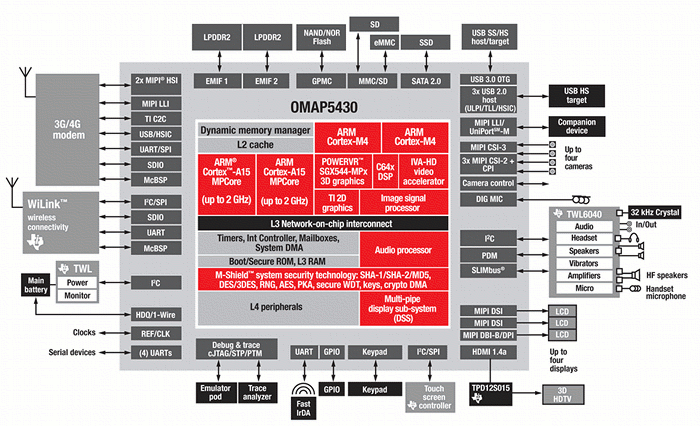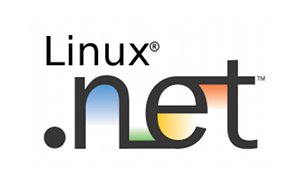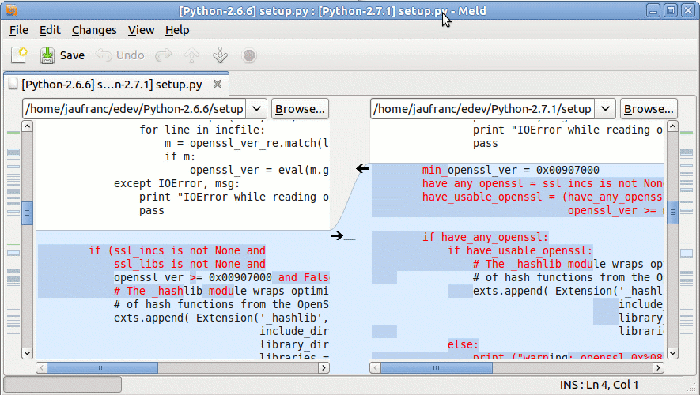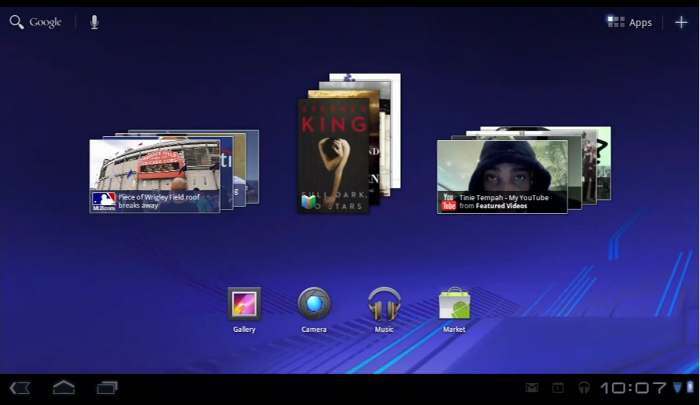Texas Instruments announced its new generation of mobile chips OMAP 5 based on the latest ARM core Cortex A15. Press release excerpt: DALLAS (Feb. 7, 2011) /PRNewswire/ — Texas Instruments Incorporated (TI) (NYSE: TXN) announced today the next generation of its popular OMAP™ family: the OMAP 5 mobile applications platform, which is positioned to transform how mobile devices, such as Smartphones, tablets and other mobile form factors are used, making them even more valuable in our daily lives. … The 28 nanometer OMAP 5 applications processors carry on the OMAP family tradition of delivering significant increases in performance and functionality, while lowering power consumption compared to their predecessors. Specifically, they offer up to 3x processing performance and five-fold 3D graphics improvement, yet provide a nearly 60 percent average power reduction compared to a sample user experience on the OMAP 4 platform. Additionally, the OMAP 5 platform’s software is designed for […]
Running .NET applications on Linux Embedded Systems
You may have some applications developed using Microsoft .NET application framework that are running on Windows XP, Windows Vista and Windows 7. .NET for Linux If after spending much effort and time, you have a request to port your application to Linux, you don’t need to rewrite everything thanks to Mono, an open source implementation of .NET framework that can be run in Windows, Linux and MacOS. The development framework is composed of three parts: Mono – An open source, cross-platform, implementation of C# and the CLR that is binary compatible with Microsoft.NET MonoDevelop – An open Source C# and .NET development environment for Linux, Windows, and Mac OS X Mono Tools for Visual Studio – Development Tools to develop and migrate .NET applications to Mono on Linux without leaving Visual Studio. This application can be tried for 30 days and / or purchased. This tools is compatible with Visual […]
Folders and Files Comparison in Linux with Meld
Beyond Compare and Winmerge are tools that can be used to compare files in Windows, but the latter is not available in Linux and the former is only available as a commercial application. One alternative is to use Meld, a diff and merge tool for Linux. This open source program is a GUI for diff2 and diff3 written using pygkt toolit based on Python, Glade and GTK+. This is not as powerful as the two programs aforementioned, but still very useful. It can also compare 3 files at the same time. To install it in ubuntu: sudo apt-get install meld It will still allow you to compare files, directory and merge changes. The file comparison merge function is a little confusing at first, but after a while you’ll get used to it. Meld can also support version control comparison with CVS, SVN, GIT, Bazaar-ng or Mercurial.
Cross-compiling Python for MIPS and ARM Platforms
Python programming language is used in several open source projects such as Sugar OS and Xibo. Let’s see if we can cross-compile it in Ubuntu 10.10 using a mips compiler. I’ll use the instructions given at http://randomsplat.com/id5-cross-compiling-python-for-embedded-linux.html. Let’s download Python 2.7.1 first and extract the source code:
|
1 |
tar xjvf Python-2.7.1.tar.bz2 |
Then run the following command in Python-2.7.1 in order to build some tools for the host:
|
1 2 3 4 5 |
./configure make python Parser/pgen mv python hostpython mv Parser/pgen Parser/hostpgen make distclean |
There is no patch for Python 2.7.1 cross-compilation in the link above, so let’s just try to configure and build it:
|
1 2 |
CC=mipsel-linux-gcc CXX=mipsel-linux-g++ AR=mipsel-linux-ar RANLIB=mipsel-linux-ranlib ./configure --host=mipsel-linux --target=mipsel-linux --prefix=/python make HOSTPYTHON=./hostpython HOSTPGEN=./Parser/hostpgen BLDSHARED="mipsel-linux-gcc -shared" CROSS_COMPILE=mipsel-linux- CROSS_COMPILE_TARGET=yes |
If we don’t use a patch the first error is:
|
1 |
Include/pyport.h:243:13: error: #error "This platform's pyconfig.h needs to define PY_FORMAT_LONG_LONG" |
So I used some older patch to create a new patch: http://www.cnx-software.com/patch/python-2.7.1-cross-compile.patch. You can download it an apply it as follows:
|
1 |
patch -p1 < python-2.7.1-cross-compile.patch |
And repeat the step above to configure and cross-compile Python for mips. Finally install Python in ~/Python-2.7.1/install for example:
|
1 |
make install HOSTPYTHON=./hostpython BLDSHARED="mipsel-linux-gcc -shared" CROSS_COMPILE=mipsel-linux- CROSS_COMPILE_TARGET=yes prefix=~/Python-2.7.1/install |
After that copy all necessary files in ~/Python-2.7.1/install to your […]
Android Event: Android 3.0 Presentation and MarketPlace Update
Google Android Event on the 2nd of February 2011 was divided into two part a demo about Android 3.0 (Honeycomb) features on Motorola Xoom (First 30 minutes) and an update on Android market place with the new Android market Webstore. The full event (below) lasts for around 53 minutes. If you are in a hurry, you can check the summary under the video and screenshots. During the Android 3.0 presentation, they showcased some of the platform new features such as the multitask button (e.g. to show recent apps), the grid widget, the stack widget and the new notifications mechanism. They also demo’ed backward compatibility of older apps development for Android 2.x by playing Fruit Ninja game. Then the used Gmail app to show the new features of the application framework suh as fragments, drag and drop and the application bar. They spent a fair amount of time boasting 2D and […]
Ayuda Splash Digital Signage Player Becomes Open Source
Ayuda Media Systems announced OpenSplash – a free, open source digital signage player at ISE 2011. Press Release Excerpt: Ayuda Media Systems (“Ayuda”) announced today at ISE 2011 that it will be open sourcing its Splash Digital Player. Dubbed “OpenSplash”, it is a free, multi-platform open source player that can be driven by any content management and scheduling system. “Offering a free, open source media player will enable a new wave of innovation in the signage industry” said Andreas Soupliotis, President & CEO of Ayuda. “There are a multitude of software vendors in the space that basically all do the same thing – push content from a content management system (CMS) to a network of players. Some do it a little better than others but the differentiation of identity is just not there. If there were a standard open software player that the industry rallied behind then everyone could focus […]
Picture Size Optimization for Embedded Systems
If you are developing an embedded system that requires a graphical user interface, you’ll likely have quite a few icons and/or images to store in the flash/rom. If your hardware has limited space, you may have to optimize the size of picture so that they can fit into your flash with no or minimal loss of quality. Reducing image size may also be of interest for mobile websites that can be accessed by devices with lower hardware specs and relatively low network throughput (EDGE/3G). I’ll use GIMP 2.6 – The GNU Image Manipulation Program to work on pictures in order to optimize their size. Selecting the picture format The most common picture file formats are bmp, jpg, png and gif. BMP File Format (aka Bitmap Image File or Device Independent Bitmap) can not compress images except for 8-bit color depth, so it is not suitable for embedded systems. JPG File […]
Near Field Communication (NFC) in Public Transport
The NFC Forum, a non-profit industry association that advances the use of Near Field Communication (NFC) technology, has recently published a White Paper entitled “NFC in Public Transport” and show how you can leverage NFC technology in such environment. The whitepaper mainly focuses on mobile phones, readers and smart posters. If you need an introduction about NFC, including starting points for developing hardware and software, please read our previous blog entry first. What can NFC do in public transport ? After a short NFC introduction, the whitepaper deals with the possible applications related to public transport including: Transport timetables Link to an up-to-date weather report website Special discounted travel offers Location relevant maps Next bus arrival time Taxi services Emergency calls Phone-to-phone transfer of destination addresses and maps to taxi driver and how NFC can be used before the journey (e.g. paying for parking, using smart poster for products/services promotions […]












